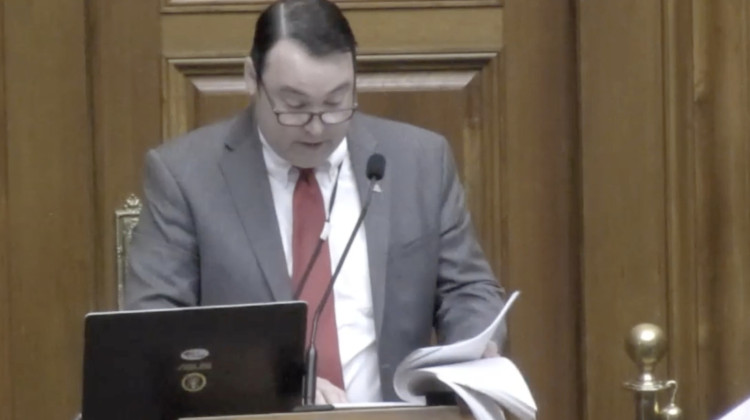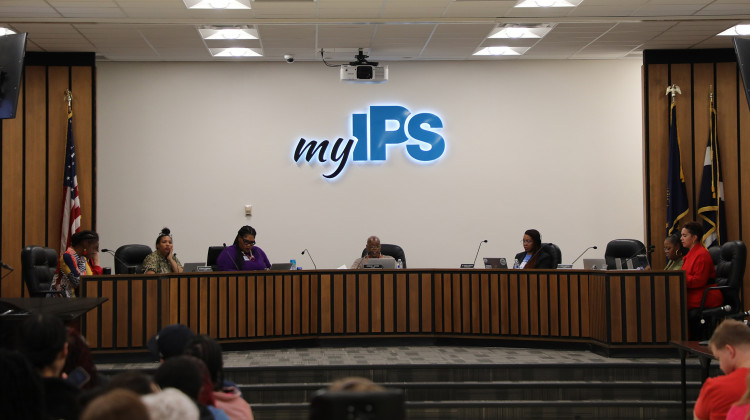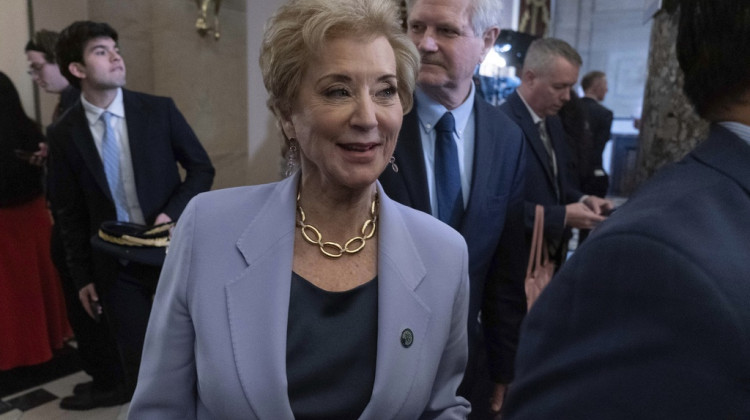Indiana Attorney General Todd Rokita is asking a Marion County court to temporarily block the sale of unused buildings by Indianapolis Public Schools. It's the latest action in the legal fight over whether the district is exempt from a law that requires unused school buildings be offered for $1 to charter school organizations.
The ongoing dispute is pitting the district, which faces financial and academic challenges, against school choice advocates.
Last month, IPS filed a lawsuit against Rokita and state Education Secretary Katie Jenner when it asked a Marion Superior Court to declare the district meets a new exception to the so-called “$1 law” and is allowed to sell two recently closed school buildings.
But in the countersuit filed Monday, Rokita's office argues that IPS falls short of the exemption status, and that IPS Superintendent Aleeisa Johnson understood the district would not be immediately exempt after the new law took effect. James Bopp Jr., a prominent conservative lawyer, is representing Rokita in the case.
In 2011 lawmakers passed the $1 law to give charter schools, which do not receive property taxes for facilities, access to vacant buildings. The law was updated this year to exempt districts that share funds from a property-tax ballot referendum with charter schools, among other requirements.
Attorneys for IPS claim the district’s 2021 decision to share funds from its 2018 property-tax referendum with charter schools the district partners with qualifies the exemption.
But Bopp said that’s incorrect and points to multiple stipulations in the new law that IPS has not met. A foundation of the exemption status is for a district to pass a tax referendum after May 10, 2023 and IPS has not done so, Bopp argues in the court docucments.
Additionally, the law also requires a school district to work with the county auditor to determine which charter schools are eligible for a revenue share, and provide a calculation of the amount of the funds to be distributed to charter schools.
"IPS may not point to a prior referendum which did not contemplate the calculations required by" the law, Bopp wrote.
The countersuit also references an exchange between Johnson and House Education Committee Chair Bob Behning (R-Indianapolis) during a Statehouse hearing on March 29. Behning tells Johnson, based on the then-current version of the bill, if IPS would pass a referendum and share an equal per student portion of the revenue with charter schools, then the district would be exempt from the $1 law.
“That would be certainly something we could take into consideration at this point,” Johnson replied.
On Tuesday the district declined to comment on the new legal filings.
In July the IPS Board started the process to sell two closed school buildings — Raymond Brandes School 65 and Francis Bellamy School 102 — as part of a major overhaul to address facilities and academic concerns. VOICES, a nonprofit that offers youth programs, is interested in purchasing School 102 so it can expand.
Jenner notified the district on Aug. 15 it was required to submit a notice of the building to the Department of Education before the end of August. The district did not.
Now, Andrew J. Brown Academy charter school is interested in acquiring School 102 through the $1 law and relocating there for the next academic year.
The law remains controversial because traditional public school districts, like IPS, do not want to give facilities to charter schools that will compete for students.
A hearing for IPS’ preliminary injunction to prevent the IDOE from enforcing the law so it can proceed with the potential building sale is Oct. 16.
Contact WFYI education editor Eric Weddle at eweddle@wfyi.org or call (317) 614-0470.
 DONATE
DONATE







 Support WFYI. We can't do it without you.
Support WFYI. We can't do it without you.